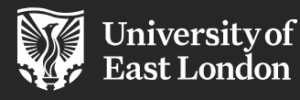Study in UK with
BBC Global Education
Unlock world-class education and global career prospects by studying in the UK. At BBC Global Education, we provide expert support for course selection, scholarship guidance, application preparation, and visa processing, ensuring a smooth academic journey from Nepal to the UK.
Top universities to Study in the UK
BBC Global Education helps students gain admission to top-ranked UK universities renowned for academic prestige, research excellence, and a rich global reputation. With many institutions featured in the QS World University Rankings, the UK offers diverse programs, innovative teaching, and strong career prospects for international students.





Cost of Studying in UK
Studying in the UK offers access to prestigious universities and globally respected qualifications, but it’s important to plan your finances wisely. On average, international students from Nepal spend around GBP 1,100–1,500 (approx. NPR 180,000–250,000) per month on living expenses, depending on the city and lifestyle.
At BBC Global Education, we help you understand the complete cost structure, from tuition fees and rent to transportation and daily needs, so you can confidently prepare for your academic journey in the UK.
| Parameters | Costs |
|---|---|
| Avg. Cost Of Living | GBP 1,100–1,500/month |
| Avg. Rent In City Centre | GBP 900–1,200/month |
| Avg. Transportation Cost Monthly Pass | GBP 70–100/month |
| Avg Tuition Fee | GBP 10,000 – 38,000 |
Scholarships in the UK
Studying in the UK is a valuable investment in your future, but for many Nepali students, the financial aspect can be a hurdle. Fortunately, the UK offers a variety of scholarships and funding options to help ease the cost of education for international students.
At BBC Global Education, we support students in identifying and applying for suitable scholarships, whether funded by universities, the UK government, or independent organizations. These awards can cover tuition fees, accommodation, travel expenses, and living costs, depending on the program and applicant profile.
| Scholarship Type | Description |
|---|---|
| Merit-Based Scholarships | Awarded for academic excellence, leadership, or extracurricular achievements |
| Need-Based Scholarships | Offered to students from low-income backgrounds |
| University Scholarships | Provided directly by UK universities to attract international students |
| Government-Funded Programs | Sponsored by the UK Government (e.g., Chevening, Commonwealth) |
| Departmental Awards | Given by specific departments (e.g., Engineering, Health, Arts) |
| Athletic Scholarships | Given to student-athletes with strong sports credentials |
| Research-Based Scholarships | For talented athletes with national/international records |
The UK is home to some of the world’s oldest and most prestigious universities, offering diverse academic programs known for academic rigor, global recognition, and strong career outcomes. British degrees are especially valued in fields such as business, health sciences, law, and humanities.
Popular Courses in the UK
At BBC Global Education, we help Nepali students identify the right course based on their academic background, interests, and long-term career plans.
| Course Category | Popular Specializations |
|---|---|
| STEM (Science & Tech) | Information Technology, Cybersecurity, Data Science, Engineering (Civil, Mechanical, Software) |
| Business & Management | MBA, Accounting, International Business, Project Management |
| Health Sciences | Nursing, Public Health, Physiotherapy, Occupational Therapy |
| Social Sciences | Psychology, International Relations, Sociology |
| Arts & Humanities | Media Studies, Philosophy, International Relations |
| Law & Legal Studies | LLB, Corporate Law, Human Rights Law |
| Hospitality & Tourism | Hotel Management, Culinary Arts, Travel & Tourism Management |
| Environmental Sciences | Sustainability, Climate Science, Environmental Management |
FAQS about Study in the UK
Have questions about studying abroad? Our FAQs cover everything from application requirements and visa processes to scholarships and work opportunities. Get clear answers to help you plan with confidence.
You’ll need academic transcripts, a valid passport, English proficiency test scores (IELTS, PTE, or TOEFL), a Statement of Purpose (SOP), Letters of Recommendation (LORs), and financial documents. For undergraduate programs, you may also need to submit a UCAS application.
Yes, most UK universities and the UKVI (UK Visas and Immigration) require proof of English proficiency, typically via IELTS Academic or IELTS UKVI. However, some institutions accept PTE, TOEFL, or offer waivers for students who studied in English-medium schools.
Tuition fees range from £10,000 to £38,000 per year, depending on the course and university. Living costs average around £1,100 to £1,500 per month, especially in cities like London.
Yes. International students on a Tier 4 (Student) visa can work up to 20 hours per week during term time and full-time during vacations.
September/October – Main intake with most programs available
January/February – Secondary intake for selected courses
May – Limited intake at a few institutions
Yes. Scholarships such as Chevening, Commonwealth Scholarships, GREAT Scholarships, and university-specific awards are available for Nepali students. BBC Global Education helps identify and apply for the right scholarships.
After receiving a CAS (Confirmation of Acceptance for Studies) from your chosen university, you can apply for a Student Visa online. You’ll need to submit biometric data, financial proof, academic documents, and an English test score.
Yes. The UK Graduate Route Visa allows international students to stay and work in the UK for 2 years (or 3 years for PhD graduates) after completing their studies.
CPT (Curricular Practical Training): Allows work or internships during your studies, if part of your curriculum.
University of Oxford
University of Cambridge
Imperial College London
University College London (UCL)
University of Manchester
University of Edinburgh
University of Bristol
We offer end-to-end guidance, from shortlisting universities and preparing documents to securing scholarships and getting your visa approved. Our personalized approach ensures you receive the best possible support for a successful education journey.
Get in Touch
We value your inquiries, send us a message and we'll get back to you.
Frequently Asked Questions
Have questions about studying abroad? Our FAQs cover everything from application requirements and visa processes to scholarships and work opportunities. Get clear answers to help you plan with confidence.
You’ll need academic transcripts, a valid passport, English proficiency test scores (IELTS, PTE, or TOEFL), a Statement of Purpose (SOP), Letters of Recommendation (LORs), and financial documents. For undergraduate programs, you may also need to submit a UCAS application.
Yes, most UK universities and the UKVI (UK Visas and Immigration) require proof of English proficiency, typically via IELTS Academic or IELTS UKVI. However, some institutions accept PTE, TOEFL, or offer waivers for students who studied in English-medium schools.
Tuition fees range from £10,000 to £38,000 per year, depending on the course and university. Living costs average around £1,100 to £1,500 per month, especially in cities like London.
Yes. International students on a Tier 4 (Student) visa can work up to 20 hours per week during term time and full-time during vacations.
September/October – Main intake with most programs available
January/February – Secondary intake for selected courses
May – Limited intake at a few institutions
Yes. Scholarships such as Chevening, Commonwealth Scholarships, GREAT Scholarships, and university-specific awards are available for Nepali students. BBC Global Education helps identify and apply for the right scholarships.
After receiving a CAS (Confirmation of Acceptance for Studies) from your chosen university, you can apply for a Student Visa online. You’ll need to submit biometric data, financial proof, academic documents, and an English test score.
Yes. The UK Graduate Route Visa allows international students to stay and work in the UK for 2 years (or 3 years for PhD graduates) after completing their studies.
CPT (Curricular Practical Training): Allows work or internships during your studies, if part of your curriculum.
University of Oxford
University of Cambridge
Imperial College London
University College London (UCL)
University of Manchester
University of Edinburgh
University of Bristol
We offer end-to-end guidance, from shortlisting universities and preparing documents to securing scholarships and getting your visa approved. Our personalized approach ensures you receive the best possible support for a successful education journey.

